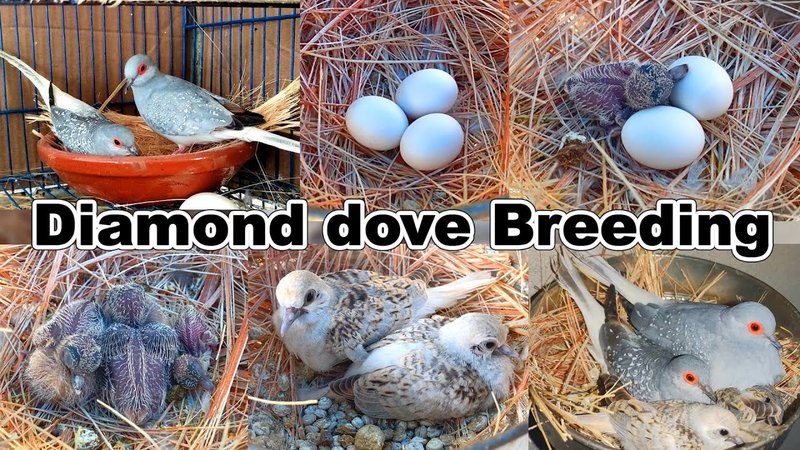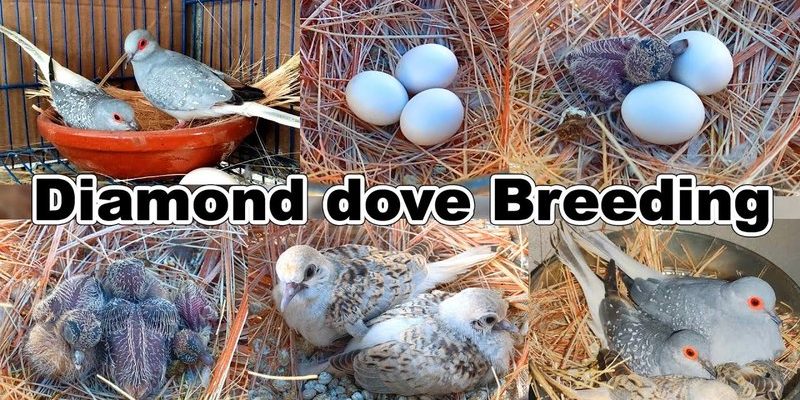
Doves are known for their affectionate behavior and nurturing nature, often forming strong bonds with their partners. But just like any other aspect of nature, their breeding is a little more complex than it seems at first glance. So, whether you’re considering raising doves or simply want to learn more about these lovely creatures, let’s dive into the world of dove breeding together!
Understanding Dove Breeding Basics
Before we get into how often doves lay eggs, it’s essential to understand how their mating and breeding rituals work. Doves are generally monogamous, which means they pick a partner for life. This bond plays a significant role in their breeding cycle. When the time is right, they’ll start the courtship process, which involves cooing, bowing, and gentle preening. It’s like a romantic movie playing out in the garden!
Once the courtship is successful, the female dove will get ready to lay her eggs. Doves typically nest in sheltered spots, and they usually choose safe places where they can keep their eggs secure from predators. The nesting process is crucial because it prepares a safe environment for their new family.
How Often Do Doves Lay Eggs?
Now, let’s get to the heart of your question—how often do doves lay eggs? Doves can be quite prolific! On average, a female dove lays two eggs at a time, but here’s the kicker: they can do this multiple times a year. In the right conditions, doves can reproduce every two weeks!
This means that, depending on their environment, they can lay anywhere from 4 to 12 eggs per year. Isn’t that impressive? Their ability to breed so frequently allows their population to thrive, especially in safe and comfortable surroundings where food and shelter are abundant.
The Role of Seasons in Egg Laying
You might be wondering if the seasons influence dove egg-laying behavior. The answer is yes! Doves tend to be more active during the warmer months. In spring and summer, they experience longer days and milder weather, which are ideal for breeding. These conditions provide easier access to food and nesting materials, essential for raising their young.
As the temperature drops in fall and winter, dove activity slows down. They may take a break from breeding during these colder months. So if you’re keeping a close eye on your doves, you might notice they’re more likely to lay eggs in the spring and summer.
Egg Development and Incubation
Once the female lays her eggs, the male dove usually helps with incubation, depending on the species. The incubation period for dove eggs typically lasts about two weeks. During this time, both parents take turns keeping the eggs warm and protected.
It’s fascinating to watch how dedicated these birds are. They often sit close together, creating a cozy, nurturing environment. You might be wondering what happens next: after the eggs hatch, the parents continue to support their young birds, feeding them a special crop milk until they’re ready to eat on their own.
Nurturing The Nest: Challenges and Considerations
While doves are generally good parents, they face challenges in the wild and in captivity. Predators, such as cats or hawks, can pose a threat to their nests. If you plan to breed doves, creating a safe environment for them is crucial. Provide nesting materials like twigs, grass, and soft fabrics, and place their nesting box in a protected area.
If you notice that your doves aren’t laying eggs or consistently abandon their nests, there may be environmental stressors at play. Factors like noise, overcrowding, or even inappropriate nesting sites can affect their breeding success. It’s essential to monitor their surroundings and adjust accordingly, ensuring they feel safe and comfortable.
Choosing the Right Species for Breeding
There are various dove species, and each has its unique characteristics. If you’re interested in raising doves, you’ll want to choose a species that fits your living situation and environment. For instance, the mourning dove is one of the most common wild doves in North America and is known for its soft cooing and adaptability.
In contrast, the zebra dove is smaller and has a distinctive striped pattern. They may require slightly different care and conditions, so researching their specific needs can help ensure a successful breeding experience. When selecting a breed, consider factors like size, temperament, and habitat needs.
Health and Wellbeing of Doves
The health of your doves also greatly influences their breeding habits. A well-balanced diet is essential for supporting their reproductive needs. Doves primarily eat seeds, but offering a variety of foods, such as fruits and vegetables, can help ensure they get all necessary nutrients.
Regular check-ups with an avian vet can catch potential issues that might hinder their breeding success, too. Honestly, keeping an eye on your doves’ health isn’t just good for breeding; it helps them live long and happy lives!
In summary, doves are fascinating creatures with intriguing breeding habits. They can lay eggs every couple of weeks under the right conditions, with a preference for warmer weather. To promote successful breeding, it’s essential to provide a safe nesting environment, a balanced diet, and regular health checks.
If you’re thinking about raising doves, take the time to learn about their needs and behaviors. With the right care and understanding, these beautiful birds can bring joy and harmony to your home. So, whether you’re a casual observer or a budding dove owner, you now have a clearer understanding of when and how often doves lay eggs!

